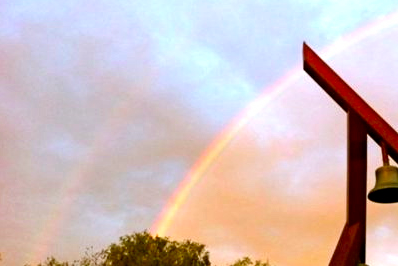We, The Biola Queer Underground, are a group of like-minded LGBTQ (lesbian, gay, bisexual, transgender, and queer) students and allies who have formed a private underground community in which we share our life struggles, as well as our love and support for one another. The main problems that we see in the Biola community are the isolation, pain, and fear of LGBTQ people. Our desire is to create a place of love and unity for LGBTQ and straight allies, where one can be open, vulnerable, and find unconditional acceptance. We also share a strong commitment to make Biola a safer, saner and more welcoming environment for students of all sexual orientations and genders. If you would like to be apart of what we are doing, or want a safe place to be yourself, we would love to talk to you. Because of the nature of our community however, we cannot simply post a time and a place for you to meet with us. If you are truly interested in joining or talking to us please email us at: biola.underground@gmail.com
So reads the “about us” section of The Biola Queer Underground’s website. For those of you who don’t know, Biola University is a conservative Christian university with traditional views on human sexuality.
The Biola Queer Underground is a website for LGBTQ students at Biola. It has recently been advertised on Biola’s campus without permission (permission wouldn’t have been granted anyways). The site has caused a bit of an uproar amongst both conservative and liberal students.
I won’t pretend to imagine the suffering that a LGBTQ person experiences throughout their life. I have talked to a handful of men and women within Christianity that struggle with same-sex attraction. They have described to me the isolation, disassociation, and shame they feel on a daily basis. Usually these discussions are ones that end in prayer instead of advice. They are never easy and always awkward. And they show me at least one thing about this issue: it’s an exposed nerve.
A few days ago I was introduced to this new movement by a flurry of text, twitter, and facebook messages all asking me what I thought. And yesterday, I read every single word on the site. Some of my friends are posting the site to be a part of what they might consider our generation’s most important civil rights movement.
I have a few thoughts but before I give them, I want to be up front about my stance towards LGBTQ lifestyles: I think they are prohibited in the Bible and therefore unacceptable choices for believers. That being said, there is a certain picture of Evangelicals as “gay-haters” that neither I, nor any one of my Christian friends can be identified with. I do not hate LGBTQ people. I do not believe that homosexuality (or anything else associated with it) is some sort of “super sin” that comes with a one-way ticket to hell. Homosexuality does not make me any more “uncomfortable” than anything else that I consider a sin. All of these statements need to be understood when you read what I have to say next. I want my cards to be on the table.
As I am sure that Biola University is developing a thoughtful response, I have been reflecting on two ways in which Christians fail to deal with LGBTQ issues. It is important to note that the further leans into one of these two extremes, the less Christian they are acting.
First, there are the usual hate mongers. I don’t actually like using that word because I’m sure that somewhere, someone would apply it to me. I am not using it flippantly to circumvent the issue. I do not casually call someone who disapproves of something a hate monger. It’s used that way far too often and I’m tired of hearing it. But, in this case, the word fits. Here it would apply to groups of people that are so filled with anger and hatred towards homosexuality that their message totally misses the point. Signs reading, “God hates fags” are a common accessory in this camp. As with anything so controversial, there are continual shades of grey leading away from this very dark black. The message is not God centered or love centered. It does nothing but inspire fear and loathing. This is an unhelpful way to respond to LGBTQ issues. Many who act this way aren’t Christians at all, they just use our name and make us look bad.
Second, there is the other extreme. I have seen too many situations where someone cares so much for the immediate feelings of whoever they are interacting with that they fail to stand up and identify sin. It is too often assumed that sparing somebody’s feelings is more important than rebuking them. I think that this response is born from the sad conflation of love and approval. Love is not approval. Love can lead to approval, and the other way around, but they aren’t the same thing. I don’t actually act in love if I approve of an action. In fact, if I approve of sin in someone’s life, I am failing in love to him or her. The idolization of approval has diluted the Church’s ability to call for righteousness in people’s lives. It is important for Christians to teach Biblical truth.
A friend recently told me that Christians need to address these issues. He added, “with boldness and love.” These two ideals are not mutually exclusive. In fact, I believe that they are closely connected. When I truly love someone, I must speak boldly to them when I believe they are sinning.
Whereas I disagree with many of the statements on the Biola Queer Underground website, I do hope that it sparks conversation and helps to create an environment where meaningful discussion about LGBTQ issues and Spirituality can take place.






25 Comments
Leave your reply.